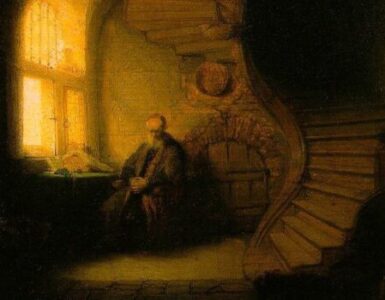On December 1, 2023, The New York Times published an opinion article which argued that children should be allowed to decide if they want to transition genders. Such a thesis is not uncommon in the contemporary scene. What was unique about this article was how the author, Lydia Polgreen, argued for the position. Lydia explained that children are regularly allowed to make serious decisions for themselves that have lasting and life-changing effects. Further, many children come to regret these decisions, but we do not think that we should deny children the right to make these decisions because of that. Therefore, we ought to let children freely decide if they want to change genders. What other life-changing decisions that children are allowed to make did she compare gender transition to? Choosing which sports to play, how competitively to play sports, and cosmetic plastic surgery such as nose jobs. She wrote:
We allow children to make irreversible decisions about their lives all the time, ideally with the guidance and support of the communities that care for them. Sometimes they regret those decisions. The stakes vary, but they are real. So what are we saying, really, when we worry that a child will regret this particular decision, the decision to transition? And how is it different, really, from the decision I made to quit competitive swimming? (https://www.nytimes.com/2023/12/01/opinion/politics/life-without-regret.html)
Lydia admits that many people will see the comparison as absurd, but she wants to challenge this instinct and insists that the comparison is genuine. The issue here is not one of argumentation or her reasoning process. Instead, it is much more fundamental. Lydia’s error is an error of basic understanding.
In older Catholic thought, there were several different types of virtues. Chiefly there were the three theological virtues: faith, hope, and charity. There were the four moral or cardinal virtues: prudence, justice, fortitude, and temperance. These two sets of virtues are still talked about often. But there remains a third type of virtue, the intellectual virtues. The intellectual virtues enable one to think and reason properly. They are as follows: understanding, science, wisdom, art, and prudence. The first three, understanding, science, and art, are virtues of the speculative intellect. They help us know things well and make reasoned deductions from what we know to increase our knowledge. The last two, art and prudence, are virtues of the practical intellect, they help us apply our knowledge to making and doing things.
Among all the intellectual virtues, the most foundational is understanding (in Latin, intellectus). Understanding is the intellectual virtue that enables one to grasp first principles and basic reality. It is understanding that allows one to perceive the differences between things in the world. Understanding allows one to just know that the principle of non-contradiction is true (a thing cannot both be and not-be at the same time and in the same way). It refines one’s ability to size up a situation and recognize the key details. Without this virtue, our perception of reality is warped and simply incorrect.
The intellectual virtue that modern education focuses on is science. The modern emphasis on critical reasoning, argumentation, and logic is basically a modern notion of the intellectual virtue of science. Traditionally, science was the intellectual virtue of reasoning, of moving from principles to conclusions correctly. People will often attack their intellectual opponents by pointing out logical errors or gaps. While the virtue of science is genuinely important, it relies on the previous virtue of understanding – one’s reasoning will be faulty or useless if one’s perception of reality is wrong.
We cannot really argue with someone who claims that choosing to play competitive sports is analogous to choosing to transition one’s gender. These are just two very different things. It is not by the virtue of science that we know this, but by the virtue of understanding. We just perceive and recognize that these are incomparable. Failures in the virtue of understanding cannot be solved by the exercise of the virtue of science, we must address this different and more fundamental error.
This example (Lydia Polgreen claiming that sports and gender transition are similar choices) is just an illustration of what our culture suffers from largely – we lack basic understanding. We are no longer good at perceiving reality correctly. We are confused about the way basic things are. We cannot identify key factors or details when making decisions.
It seems that we have caused this issue ourselves. We are bad at perceiving reality because we do not interact with it often. We filter reality through computers and smartphones. We surround ourselves with synthetic artifacts and comforts. We consume pre-prepared and pre-packaged food. We watch more social interactions on shows and shorts than we engage in ourselves. This distance from basic reality (how often do you touch the earth itself, not an artificial floor?) prevents us from developing the virtue of understanding. Instead of recognizing the way things are, and being corrected by reality when we are wrong by things not working well, we experience life heavily filtered. We are protected from the natural consequences of our actions by technology, so we don’t learn from our mistakes as quickly as we would.
However, there is a cure for this problem. Interact with basic things often. Cook your own food and bake your own bread. Interact with nature regularly. Engage in more social interactions and do so directly, not filtered through various forms of technology. Do some manual labor yourself, don’t always hire someone to do it for you and don’t always use helpful machines. Media and technology are not inherently bad, but too much of either is dangerous.
Prayer is ultimately the best way to connect to reality. In prayer, we raise our minds to the base of all reality – God Himself – Ipsum Esse. This is especially true in the sacrifice of the Mass, where we offer sacrifice to God and receive Holy Communion – we receive the very Body of God and are made more like Him.
Photo by David Beale on Unsplash















